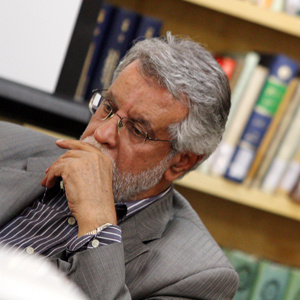Will Mubarak Escape Punishment?

Fahmy Howeidy, the famous Egyptian writer, recently wrote an article in which he said that nothing has changed in Egypt—the foreign policy is still the same and the Egyptian security system still cooperates with the Israeli and American security apparatus. The president continues to control the country’s foreign policy from Sharm el-Sheikh and what is said about his health is only meant to put the public at ease. Thus, the public has been demanding the prosecution of Hosni Mubarak.
The importance of Hosni Mubarak’s trial is to show that his regime has collapsed and a revolutionary government has to come to power. The prosecution of the head of a regime signals the end of his regime.
Meanwhile, some insist that a president should not be put on trial in an Arab country. They say that this will become the pretext for the spread of this kind of event to other countries, and the prestige of a president should be observed, even if he is dethroned.
Some Arab kingdoms, especially Saudi Arabia, emphasize this stance. Saudi Arabia even made its financial aid to Egypt subject to the cancelation of Mubarak’s trial.
This trial was accompanied by a huge amount of propaganda; there were rumors that people would attack Mubarak before he reaches the court. Therefore, security forces brought Mubarak to the Cairo courthouse in a helicopter. He was not alone—his two sons A’lla and Jamal accompanied him. In addition Habib Adli, the former Egyptian Minister of the Interior, was also brought to court.
The accusations were obvious. The first accusation regarding Mubarak was his order to kill protestors. More than 800 were killed during the turbulence leading to the Egyptian revolution—by order of Mubarak. The interior minister can claim that he acted upon the orders he received from the President. His second accusation is that he exploited public assets, and the third accusation focuses on Egypt’s cheap export of natural gas to Israel. Jamal Mubarak is also accused of corruption and abuse of public assets.
If these accusations are proven, execution will be awaiting the accused. But what we witnessed in court seemed more like a show, and propaganda to satisfy the public. Hosni Mubarak entered the court on a hospital bed accompanied by nurses. The way the male nurses stood by him prevented the cameras from zooming onto Mubarak’s face; his head on a pillow as he answered the judge. The way Mubarak appeared before the court indicated two main points. First, there was an attempt to maintain the respect of the dethroned president. He did not stand against the judge like any other accused; moreover his appearance was aimed at raising the sympathy of the public.
It seems that everything was calculated. Even though authorities want to say that the trial is really taking place, this trial will have no other result but to inform the people that their demand was responded to. The trial will have many sessions, and through the passage of time its importance will diminish and it will reach no result in the end.
It remains to be seen if the public and the Egyptian youth are satisfied with this type of trial. Naturally, those who have lost a dear one in this revolution want the accused to appear before the court ignominiously and humiliated. However, this court seems to be more of a show than a real trial of the dethroned president. Even if he is sentenced to death we should not expect the same fate for Mubarak as Saddam Hussein— probably due to his old age and his disease.

